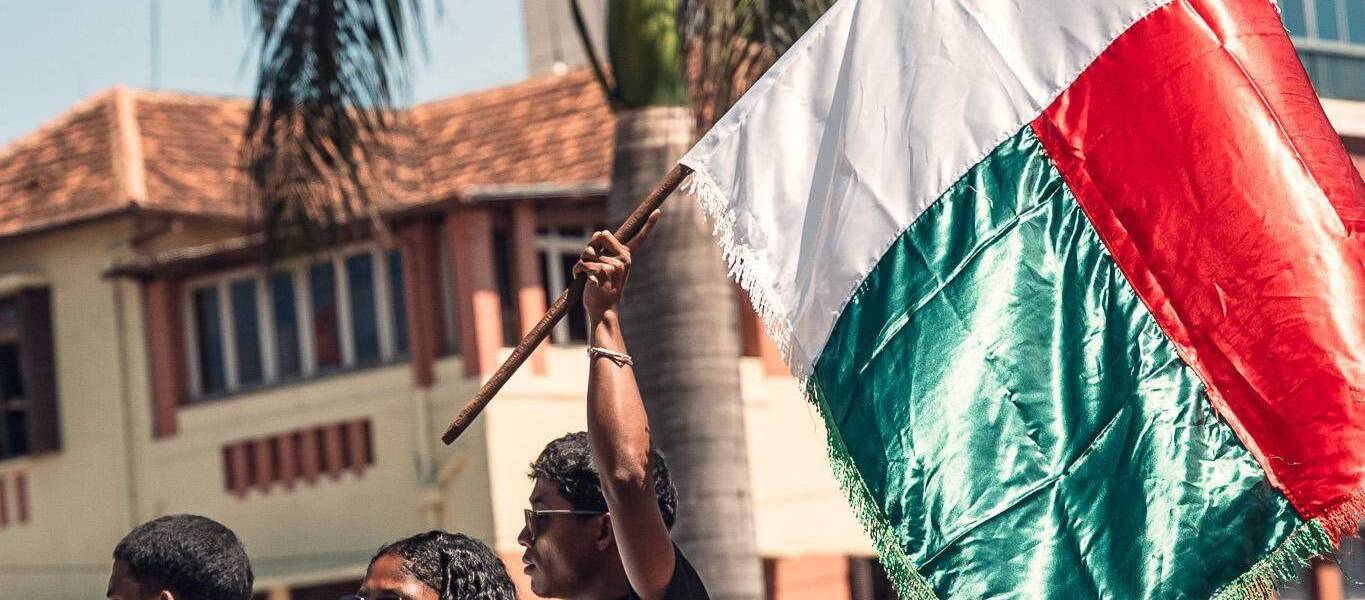Unrest and Uncertainty: What Madagascar's Turning Point Could Mean for the Country's Future
In recent weeks, protests across Madagascar have grown from small gatherings in Antananarivo to a nationwide crisis. What began as youth-led demonstrations over persistent water and electricity shortages has evolved into a broader social movement calling for systemic change. The protests, often described as part of a wider ‘Gen-Z’ wave of mobilisation, have provided a platform for citizens across generations, including members of the military, to express their frustrations and demands.
Over the weekend, CAPSAT, an administrative branch of the Malagasy army responsible for managing the military's weapons stores, publicly aligned itself with demonstrators. While not a combat unit, CAPSAT's role is strategically significant; its siding with protesters marked a major shift in national security dynamics. Reports now indicate that the military has assumed control of the country, following a public declaration by members of the CAPSAT unit on national radio. Former President Andry Rajoelina, whose whereabouts remain unknown, has accused the group of staging an attempted power grab after he dissolved the National Assembly.
Those involved in the movement however have rejected the idea that this is a coup. "The change underway in Madagascar is not a coup d'état, but a popular awakening. No power was taken by force. Citizens, associations, students, unions and the military acted out of conscience and patriotism," said representatives of the Gen Z Madagascar movement.
A Familiar Cycle
For many in Madagascar, political instability is not new. The nation has experienced repeated periods of upheaval, the most notable being in 2009, when Rajoelina, then the mayor of Antananarivo, came to power following a military-backed coup that ousted President Marc Ravalomanana. The aftermath saw international sanctions, suspended aid, and economic downturn, but eventually democratic elections resumed in 2013.
This historical pattern, upheaval followed by gradual reconstruction, highlights both the resilience and fragility of the nation. Each cycle leaves institutions weakened, development delayed, and public trust eroded. The current crisis, which has drawn broad international attention, echoes past movements, including the 1972 protests, and underscores the challenges posed by a rapidly growing young population with limited opportunities and investment.
The Broader Implications
While this moment reflects legitimate popular frustration, the uncertainty it brings could have far-reaching consequences. Internationally, Madagascar's reputation as a safe destination for tourism and investment may suffer. Media coverage of the unrest and the military's direct intervention risks deterring investors, tourists, and donors, even in regions far from the capital.
For NGOs and civil society organisations, operational constraints may increase. Existing collaboration frameworks with ministries could be disrupted, requiring renegotiation. Funding delays or cancellations from major international donors are also possible as agencies reassess engagement amid political instability.
Basic services may face disruptions, and economic contraction is a real risk if uncertainty persists. In a country where communities already face chronic challenges in water, food access, electricity, education, and livelihoods, these impacts could further deepen inequality and vulnerability.
A Complex Moment for Civil Society
For organisations like SEED Madagascar, focused on helping to improve lives and protect ecosystems in the southeast, the current situation brings both challenges and considerations. Political instability in the capital can feel distant, but its ripple effects inevitably reach local communities. Funding cycles, partnerships, and delivery of essential services all depend, to some degree, on national stability.
At the same time, it is important to recognise that this movement, and the frustrations fuelling it, stem from real inequalities and unmet needs. Many of those who called for change are young Malagasy citizens seeking a fairer, more inclusive future. Their voices deserve to be heard. The challenge ahead lies in ensuring that this period of turbulence leads to meaningful change, rather than another reset in a long cycle of instability.
Looking Ahead
Madagascar has weathered crises before, and history suggests that transitions often eventually lead back to a functioning democratic framework. Yet, the cost of repeated disruptions is high, economically, socially, and environmentally. The coming months will be critical in determining whether this movement can prompt structural change or whether uncertainty will create further setbacks.
At SEED, our priority remains unchanged, though all the more imperative: to work alongside communities in southeast Madagascar to help strengthen resilience, support livelihoods, and protect the environment. While the national picture remains unpredictable, the needs of these communities, and the importance of a stable, collaborative future, are ongoing.
